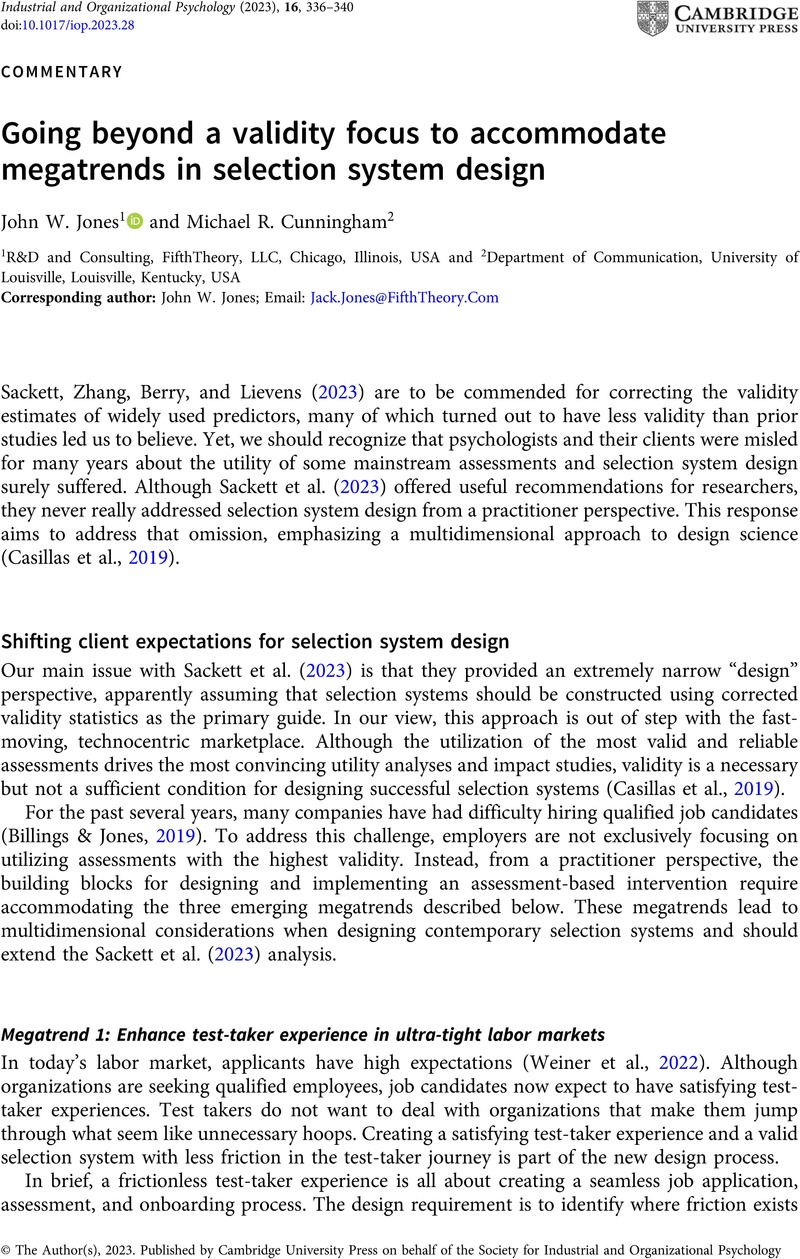Crossref Citations
This article has been cited by the following publications. This list is generated based on data provided by Crossref.
Campion, Emily D.
Campion, Michael A.
and
Strah, Nicole
2025.
Influence of Proctored Remote Versus Onsite Assessment on Candidate Scores, Assessment Types, Subgroup Differences, and Fairness Reactions.
Human Resource Management,



